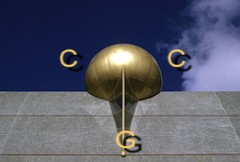CC Sunday Viewpoint
Nigeria is the most populous country in Africa, and indeed the most populous black nation in the world; one of the biggest producers of crude oil and 6th largest exporter of the commodity to the US; has the third fastest growing economy in the globe; one of the biggest contributors to United Nations peacekeeping operations worldwide.
Conversely, a perennial under-achiever, given its huge human and material resources, and now in the vice-grip of divisive terrorist elements on both sides of the River Niger. Easily the West African big brother, any sneeze from Nigeria, in spite of her challenges, could send more than cold shivers down the entire sub-region.
For these reasons, the good, the bad and the ugly, one would have thought any sustainable policy direction of the global police as represented by the United State of America would have Nigeria as the center-piece and nerve center. But since President Jimmy Carter’s visit in 1976, no sitting president of the United States has come knocking the country’s doors. President Bill Clinton did come, but he was already an ornament President on his way out of the prestigious White House.
President Barack Obama’s continuous snub appears even more frustrating and may have exposed the frustration of many Nigerians who actually supported Obama’s ascendancy –– albeit more for filial reason.
This is the second time that Obama is skipping Nigeria from his visit to Africa as the US president had excluded Nigeria during his first visit to Ghana on July 11, 2009.
However, if filial arrangement is a key factor in deciding which country Obama visits, Kenya appears more hard-done by the second snub.
Speaking on why Obama is again exempting Nigeria from his proposed visit to three African countries –– South Africa, Senegal and Tanzania, Professor Emeritus at the department of Politics and International Studies, Lead University, Ibadan, Oyo State, Dr. Alaba Ogunsanwo, perhaps in frustration, wants Nigeria to forget Obama and his visits and rather face up with the country’s domestic challenges.
Indeed, as the two-time Fulbright scholar (1979 and 1986) pointed out, one can only go by the publicly given reasons for the omission of Nigeria.
The first relates to the titanic fight against corruption, which the American administration, according to Ogunsanwo, erroneously believed the Nigerian government was engaged in before the advent of the current administration. “All knowledgeable Nigerians were aware that it was a phony war but US chose foolishly to believe in the genuineness of the fight. The current actions of the Nigerian leadership which confirmed the position of the ruling elite on the issue of what is called corruption must have been seen in bad light in Washington DC”, Ogunsanwo said.
Continuing, the respected don and diplomat said, “the US would have felt better if the loud noise against corruption had continued to come from Aso Rock notwithstanding the reality on ground.”
The second reason given by Washington DC relates to the fight against terrorists and acts of terrorism in Nigeria. The US government supports the fight against terrorism but expects the Nigerian Security forces to apply a level of sophistication, which Ogunsanwo said is presently beyond the capacity of any African-state. In his words: “Since 1992 when the Algerian government under the National Liberation Front embarked on a sustained campaign against the Islamists who were poised to massively win the elections of that year, the US support had been unceasing. The NLF has utilized methods considered necessary given the local conditions in that country. American and other western powers have been supportive. However the Algerian government has not requested any US President to visit their country.”
Dismissing the importance of the US president’s visit, he said, “it will be unfair to see this as a reflection of inferiority or colonial mentality on the part of our officials. They did not demonstrate this mentality under General Abacha! It must, therefore, be from the higher level that the feeling has percolated.
“Nigeria should just ignore the so called non visit of Obama. We have fundamental problems of Identity and Direction to contend with inside the country. Others will beg to visit us when we put our house in order. We will lose nothing by the non visit of US President Obama”, he said
Obama explained his inability to visit Nigeria during the trip to Ghana on the grounds of poor democratic credential and corruption, but the situation, in the thinking of the US government, is now worse as the aforementioned issues have now assumed a frightening dimension.
On why he decided to visit Ghana then, Obama had said, “Ghana’s history is rich, the ties between our two countries are strong, and I am proud that this is my first visit to sub-Saharan Africa as President of the United States.
“And I have come here, to Ghana, for a simple reason: the 21st century will be shaped by what happens not just in Rome or Moscow or Washington, but by what happens in Accra as well“
A statement by the Office of the Press Secretary in the White House, while clarifying Obama’s visit to Africa, reads in part, “President Obama and the First Lady look forward to traveling to Senegal, South Africa, and Tanzania from June 26 – July 3.
Obama is expected to reinforce the importance that the US government places on “deep and growing ties with countries in sub-Saharan Africa, include expanding economic growth, investment, and trade; strengthening democratic institutions; and investing in the next generation of African leaders.
“The President will meet with a wide array of leaders from government, business, and civil society, including youth, to discuss our strategic partnerships on bilateral and global issues. The trip will underscore the President’s commitment to broadening and deepening cooperation between the United States and the people of sub-Saharan Africa to advance regional and global peace and prosperity.”

















